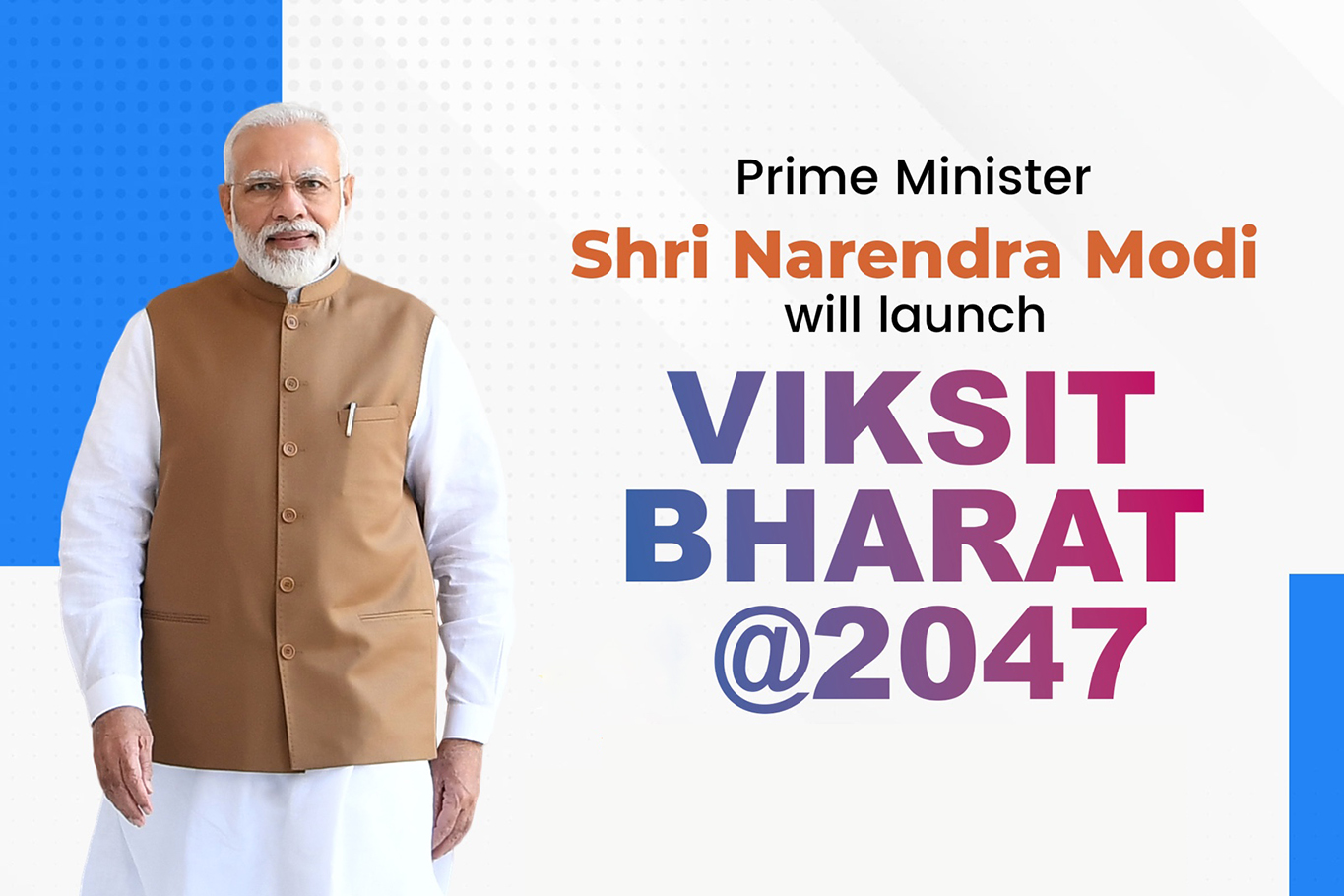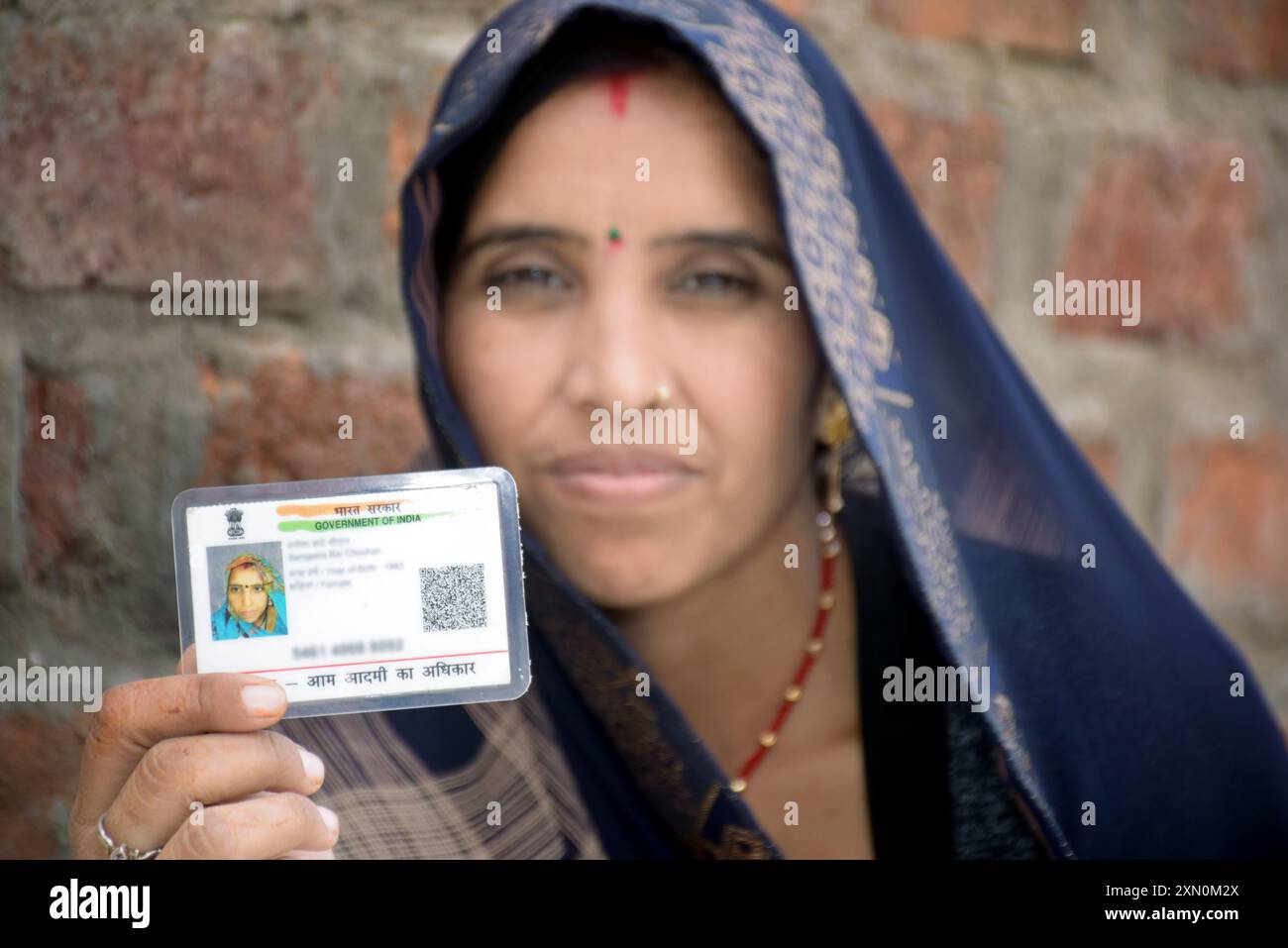


During his monthly radio program, PM Modi emphasized the significant role youth play in shaping India's future and announced the upcoming Viksit Bharat Young Leaders Dialogue to coincide with Swami Vivekananda's birth anniversary and National Youth Day. The event will bring together 2,000 young minds from across India to brainstorm and develop a roadmap for the country's progress. PM Modi also urged youth from non-political backgrounds to join politics and will personally attend as much of the dialogue as possible.
Mann Ki Baat: PM Modi Highlights Role of Youth in Shaping India's Future
In his monthly radio program, "Mann Ki Baat," Prime Minister Narendra Modi emphasized the vital role that youth play in shaping India's future. He announced the upcoming Viksit Bharat Young Leaders Dialogue, an event that will bring together 2,000 young minds from across the country to brainstorm and develop a roadmap for the nation's progress.
Background
India has a significant youth population, with over 60% of the country's population under the age of 35. This demographic dividend presents both opportunities and challenges for the nation. On one hand, a young workforce can drive economic growth and innovation. On the other hand, youth unemployment and underemployment can lead to social unrest and instability.
The Viksit Bharat Young Leaders Dialogue
To harness the potential of India's youth, the government has launched the Viksit Bharat Young Leaders Dialogue. The event, which will take place on January 12 to mark Swami Vivekananda's birth anniversary and National Youth Day, aims to provide a platform for young people to share their ideas and perspectives on key issues facing the country.
The dialogue will focus on five key themes:
Participants will be selected through an open application process and will represent a diverse range of backgrounds, including students, professionals, activists, and entrepreneurs.
PM Modi's Address
In his Mann Ki Baat address, PM Modi urged youth from non-political backgrounds to join politics. He emphasized the need for fresh perspectives and new ideas in the political discourse and expressed his willingness to personally attend as much of the dialogue as possible.
Top 5 FAQs and Answers
Q: What is the purpose of the Viksit Bharat Young Leaders Dialogue? A: To provide a platform for young people to share their ideas and perspectives on key issues facing India and to develop a roadmap for the country's progress.
Q: Who is eligible to participate? A: Young people between the ages of 18 and 35 from all backgrounds can apply.
Q: What is the selection process? A: Participants will be selected through an open application process based on their leadership potential and passion for contributing to India's development.
Q: What is the significance of holding the event on Swami Vivekananda's birth anniversary? A: Swami Vivekananda was a youth icon and a strong advocate for education and youth empowerment. Holding the event on his birth anniversary symbolizes the importance of his legacy in shaping the future of India.
Q: Will PM Modi attend the event? A: Yes, PM Modi has expressed his willingness to personally attend as much of the dialogue as possible.

Ranjana Sonawane, the first recipient of India's Aadhar card, still lacks access to government schemes 13 years later. Despite being eligible for the Chief Minister Majhi Ladki Behen Yojana, Ranjana has not received any money due to an issue with her Aadhar being linked to someone else's bank account. This case brings to light the flaws in the implementation of government schemes in rural and tribal areas, where women like Ranjana often have their funds misdirected or lack necessary information.

The Indian National Congress (INC) has announced its plans to launch a month-and-a-half-long campaign in Jammu and Kashmir on April 22. The purpose of the campaign is to demand the restoration of statehood and to further the “Save the Constitution” movement. With the recent appointment of Syed Naseer Hussain as the new J&K in-charge, the party hopes to regain its lost support in the Union Territory. This campaign comes at a crucial time, as former supporters of the Congress leader Ghulam Nabi Azad have recently dissolved their party, raising questions about their political future. The Congress hopes to use this opportunity to highlight the BJP's failures in empowering elected governments and its betrayal over statehood.

Thousands of citizens in Pune are rallying together through an online petition to demand the protection of their city's hills and hill slopes from any construction. The petition is addressed to the former Pune Municipal Commissioner and Chairman of the state-appointed Committee on Bio-Diversity Park and Hill Top Hill Slopes. The citizens are concerned that the committee's review may result in allowing construction on the hills, while strict measures have already been mandated by the government to prevent it. The citizens stress the importance of preserving these natural areas for the city's ecological balance and urge the government to uphold its promise to future generations.

After the devastating terror attack in Pahalgam, Jammu and Kashmir, India has suspended the 1960 Indus Waters Treaty with Pakistan. This decision was made during a key meeting chaired by Union Home Minister Amit Shah, with discussions on potential actions being taken against Pakistan. As tensions between the two countries continue to escalate, Indian leaders have condemned Pakistan for their involvement in the attack and have vowed to take strong measures in response.

The Indian Army made its first major move since the Pahalgam terror attack on April 22, as they killed top Lashkar-e-Taiba (LeT) commander Altaf Lalli in an encounter in Jammu and Kashmir's Bandipora district. The security forces are on the hunt for the terrorists responsible for the brutal killing of 26 civilians and have launched a massive anti-terror operation. In other developments, Indian Army Chief General Upendra Dwivedi visited Srinagar for a security review meeting and the authorities demolished the houses of two suspected terrorists involved in the Pahalgam attack.

In a hearing at the Supreme Court, the bench rebuked Congress leader Rahul Gandhi for his "irresponsible" comments about freedom fighter Vinayak Damodar Savarkar. The judges highlighted the need to show respect for India's freedom fighters and questioned whether Gandhi was aware of his grandmother and Mahatma Gandhi praising Savarkar. The court also stayed an Allahabad High Court order that refused to dismiss a lower court's summons against Gandhi over his alleged remarks about Savarkar.

The Supreme Court has stepped in to warn Congress MP Rahul Gandhi over his comments about India's independence activist Veer Savarkar, staying a trial court's summons to the politician. The top court emphasized that Savarkar is a highly respected figure in Maharashtra and stated that no one would be allowed to make derogatory remarks about freedom fighters. The court also pointed out that Gandhi's family has had a history of praising Savarkar and Gandhi himself has been warned that the court will take suo motu cognizance of any such remarks. Additionally, the article also mentions an attack in Jammu and Kashmir that has led to heightened tensions between India and Pakistan.

In a successful operation by the security forces, a Lashkar-e-Taliba (LeT) terrorist associate, identified as Altaf Lalli, was killed in an ongoing encounter in the Bandipora district of Jammu and Kashmir. The encounter began after the security forces received intelligence about the presence of terrorists in the area. Two security personnel have also been injured in the exchange of fire and are currently undergoing treatment at a nearby hospital. The clash highlights the continued efforts of the security forces to combat terrorism in the region.

The Telangana-Chhattisgarh border is a hotbed of tension as security forces step up their efforts to root out Maoist activity from the region. Top Maoist leader Hidma is the target of current high-security operations, with forces strategically advancing through previously inaccessible areas. With mounting pressure, sources indicate that the hold of the Maoists in the region is gradually weakening, making for a tense and critical situation.

As the nation grapples with the aftermath of a terror attack in Pahalgam, security forces are undertaking a massive operation in the dense Karregutta hills forest to eliminate the heart of Naxal command. This operation, involving 7,000 personnel and cutting-edge technology, aims to strike a blow at Naxalism by targeting top leaders of the PLGA Battalion No. 1. This bold move by the CRPF, with the Director General personally overseeing the operation, marks a turning point in the fight against Maoist insurgency. With five Naxals already killed and more likely to come, the operation is being hailed as a decisive victory and could potentially spell the end of Naxalism in India.